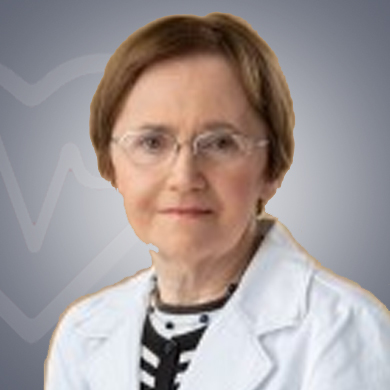
15 Years of experience
Speaks: English
Dr Agnes Farkas has treated a wide variety of conditions with high success rate and accuracy. Some of the conditions treated by the doctor are:
Diabetic Retinopathy, Dry eye Syndrome, and Conjunctivitis are common eye conditions treated by ophthalmologists. The treatment for dry eye is based on the suggestion of an ophthalmologist Treatment options may include proper dieting, medications, and surgery. Some treatments for drye eyes focus on reversing a condition that's causing your dry eyes.
Eye conditions can produce different symptoms and these can differ from person to person. Some of the signs and symptoms of different types of eye conditions include:
It is important to go for routine eye examinations to diagnose the condition. If you have not undergone an eye examination for more than one year, you must consult your eye doctor. It is important to remain aware of the warning signs which can help you make the right decision for your eyesight.
You can consult Dr Agnes Farkas from 10 am to 5 pm. The ophthalmologist works an average of 47 hours per week.
Ophthalmologist Agnes Farkas has performed a wide range of procedures. Some of the popular procedures performed by the doctor include:
LASIK is the most common type of eye surgery that fixes issues with the way the eyes focus. It could be an alternative to glasses and contact lenses. During this surgery, a special kind of cutting laser is utilized to change the shape of the clear tissue in the cornea to improve vision.

Share Your Experience about Dr. Agnes Farkas

Ophthalmologists are doctors who handle the medical aspects of eye care, such as treatment, surgery, and prescription of glasses and contact lenses as well as medicines for different eye problems. Some ophthalmologists work with other eye care team, coordinate with optometrists as well as other medical professionals to provide care for chronic eye conditions. An ophthalmologist also diagnoses as well as treats eye conditions, does eye surgeries, and participates in scientific research on the causes and treatment for eye diseases and vision issues. Sometimes, ophthalmologists also detect health issues that are not related to the eyes but become clear in a routine eye exam. The ophthalmologist recommends that the person should consult their doctor.
Some of the most common test performed for the diagnosis of eye conditions are:
There are several eye conditions and each of them produces different signs and symptoms. An opthalmologist will perform a series of tests to find out the eye problem. An eye exam helps find out eye problems at the earliest stage. Also, regular eye checkups help your eye specialist to correct or adapt to vision changes and provide you tips on eye care.
An individual needs to consult an opthalmologist in case of the below situations:
If you notice the above-listed signs and symptoms, you are suggested to see an opthalmologist for a proper diagnosis of the condition. The opthalmologist will evaluate the test reports and will plan the treatment that is best for you.